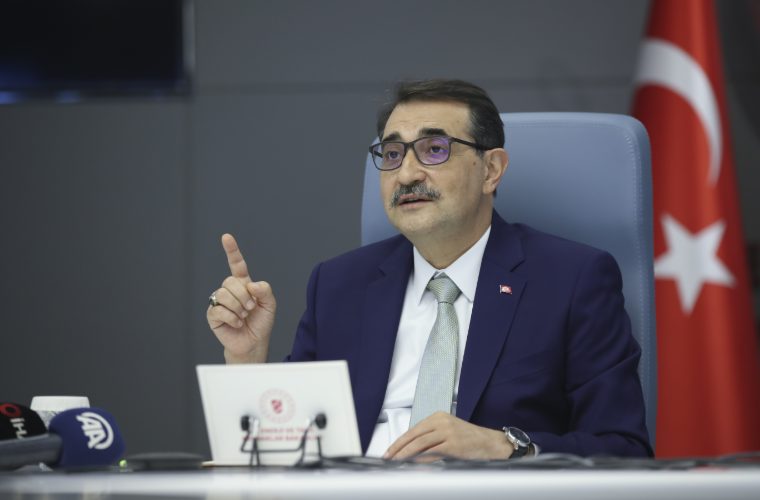Turkey plans 4 renewable tenders of 4,000-megawatt capacity by year-end
Renewable Energy Resource Zone tenders form part of Turkey's goal to expand usage of domestic and renewable sources by 2023

Turkey will administer four Renewable Energy Resource Zone (YEKA) tenders for solar and wind this year, each with a capacity of 2,000 megawatts (MW), according to Turkey's Energy and Natural Resources Minister, Fatih Donmez, on Wednesday.
Speaking at the third energy summit of Turkey’s Independent Industrialists and Businessmen’s Association (MUSIAD) via video link, Donmez said the solar YEKA tenders, known as YEKA GES-3, restarted this week, having been put on hold due to Covid-19 restrictions after their launch in the last week of April.
So far, 50 bids with a capacity of 650 MW have been finalized, and the remaining bids of 350 MW in capacity will be finalized in the coming days, he said.
Donmez said preparations are ongoing for the wind tenders that will be held in the last quarter of the year.
Turkey has made major inroads in boosting its renewable capacity and as of the end of April has recorded an installed electricity capacity of 97,376 MW, of which renewables constitute 52.5%.
He said this achievement was possible because of the reduction in the cost of renewables. It will also contribute to Turkey’s aim of supplying 65% of its energy needs from domestic and renewable sources by 2023.
"We will go to any lengths for renewable energy. However, we will also continue to support the system with baseload plants," Donmez said, which includes domestic coal, nuclear and natural gas plants.
In 2017, through the energy ministry's YEKA tenders, Turkey's 1,000 MW solar tender accepted a winning bid price per megawatt-hour of $6.99. An equivalent capacity wind tender also in 2017 was achieved at $3.49 per megawatt-hour. The country finalized its second YEKA wind tenders on May 30, 2020.
The head of MUSIAD Abdurrahman Kaan also stressed the importance of energy as a building block for sustainable development for the benefit of the country economically, politically, militarily and socially.
He said supply security is vital for a country that targets sustainable development as “any energy supply problems in these fields affect the others either directly or indirectly.”
To this end, he urged for the maximum use of domestic sources, including wind, solar and geothermal.



